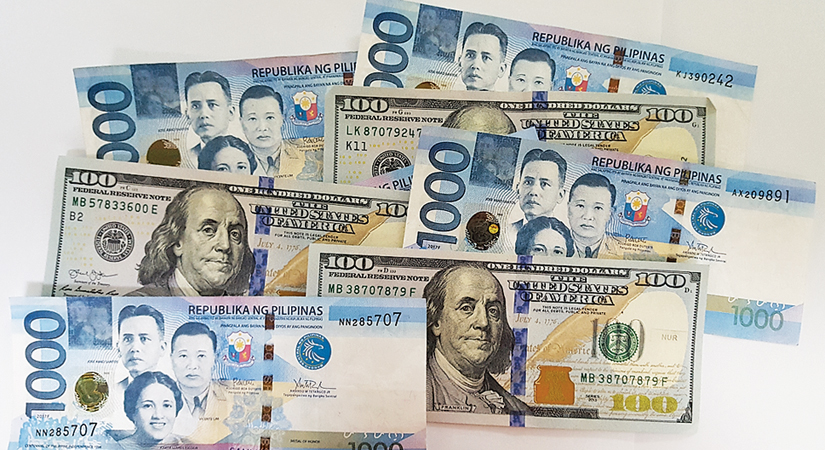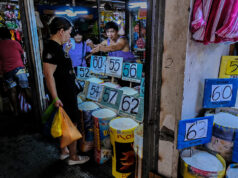Weaker peso may provide reprieve for struggling exporters

By Beatrice M. Laforga, Reporter
THE PESO’S recent depreciation to P50-per-dollar rate could provide a mild boost to the pandemic-stricken exports sector still struggling with high shipping costs and additional taxes, according to an industry group.
A weaker local currency versus the US dollar should be good for exporters as it can lift their sales revenues, George T. Barcelon, chairman of the Philippine Exporters Confederation, Inc. (Philexport), said in a phone interview on Sunday.
However, this will be partially offset by the higher input costs as imported raw materials become slightly more expensive.
“Overall, I think this (weaker peso) will help the economy both for the exporters and remittances. On the cost of goods (imports), that has to be really monitored,” he said.
The peso depreciated to P50.08 against the greenback on Friday from its P49.875 close on Thursday, its weakest in more than a year or since its P50.19-per-dollar close on June 23, 2020.
Week on week, the local unit weakened by 88 centavos from P49.20 per dollar on July 2.
Mr. Barcelon said the P49-P50 per dollar rate is a comfortable level for exporters still struggling to recover while facing high shipping costs, rising global oil prices and increased local taxes.
“I think it would hold around P50 per dollar for some time, but uncertainty remains high. Exporters generally want weaker peso, but not to a point where it affects their capacity to buy,” he said in a mix of English and Filipino.
Tight supply of shipping containers globally has pushed shipping rates even higher. Mr. Barcelon said local exporters saw their shipping expenses jump by three to four times recently.
Global oil prices continued to increase as demand picks up while inventories remain constrained. A report by Reuters showed the benchmark Brent crude oil increased by 2% to $75.55 per barrel on Saturday.
Back home, Filipino exporters are also trying to cope with the change in tax rules by the Bureau of Internal Revenue (BIR), which began imposing the 12% value-added tax (VAT) on inputs sourced locally that were previously taxed at zero percent.
The BIR instead gave the option for companies to apply for a refund to avail the incentives, which exporters said may force some firms to shift to importation.
Latest data showed goods export continued its uptrend in May after growing by 30% year on year to $5.89 billion.
Moving forward, the peso will likely continue to weaken against the greenback in the second half of the year, Colegio de San Juan de Letran Graduate School Dean Emmanuel J. Lopez said in an e-mail on Sunday.
“Economic activity has seen its previous bullish activity to have returned lately in the western region as well as European market. Locally, the gradual opening of the local economy pushed demand to its pre-COVID form [and] is expected to be sustained until the end of the year. Such event is accompanied by massive election spending which will further erode the value of the Philippine peso against the US dollar,” Mr. Lopez said.
Aside from the exports sector, he said the weaker peso will also give a boost to remittances sent home by overseas Filipino workers (OFWs).
Finance Undersecretary Gil S. Beltran said the weaker peso could also boost the taxes and duties collected by Customs.
“The depreciation follows the trend in all ASEAN/global currencies,” he said in a text message on Sunday.
Overall, Philexport’s Mr. Barcelon said the economy should be comfortable with the exchange rate of P50 per dollar over the long term.
Economic managers estimated the peso will range from P48 to P53 per dollar until 2024.
The Department of Finance (DoF), in an economic bulletin on Sunday, stressed the need to effectively contain the spread of the coronavirus to sustain the economy’s recovery, especially as new variants are becoming more contagious and deadly.
“Otherwise, government will be forced to transition from risk management stance to risk avoidance posture and make the difficult and painful decision of imposing much stricter quarantine measures,” the DoF said.



